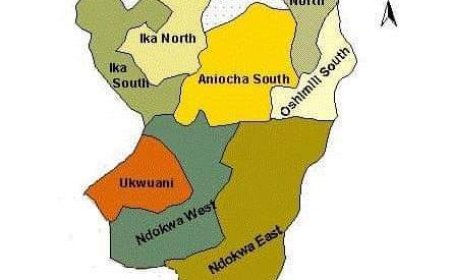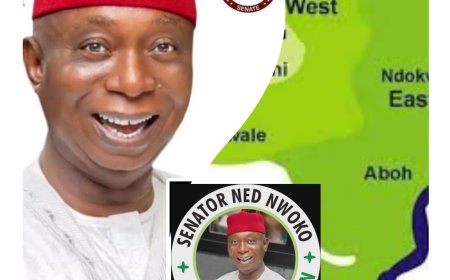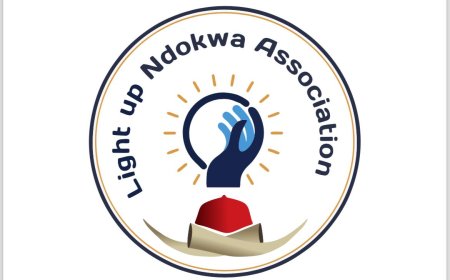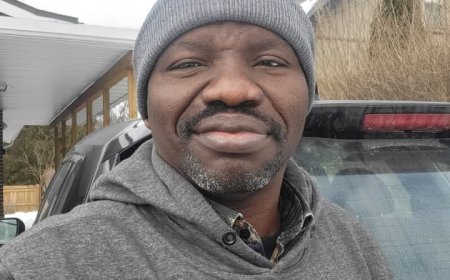The True History of the Ukwani People: A Clarification of Ancestral Roots
The True History of the Ukwani People: A Clarification of Ancestral Roots

Introduction
The Ukwani people, primarily located in the Ndokwa region of Delta State, Nigeria, have long been a subject of debate regarding their ethnic origins. While some claim they are a distinct group with ancestral ties to the Bini and Igala kingdoms, others maintain that they are a sub-group of the Igbo ethnic nation. This article seeks to clarify the true history of the Ukwani people by examining linguistic, cultural, historical, and anthropological evidence.
1. Linguistic Evidence: The Igbo Connection
Language is one of the strongest indicators of ethnic identity. The Ukwani people speak a dialect of the Igbo language, known as Ukwuani or Ndokwa. While there are slight variations in vocabulary and intonation, the core structure, grammar, and lexicon remain fundamentally Igbo.
- Mutual Intelligibility : A native Igbo speaker from Anambra or Imo can understand and communicate with a Ukwani speaker with minimal difficulty. This is not the case with Bini or Igala, which are entirely different language groups (Edo and Idomoid, respectively).
- Comparative Linguistics : Studies by scholars like Professor Kay Williamson and others classify Ukwuani as a Western Igbo dialect, alongside other Igbo subgroups like Aniocha and Ika.
- Place Names and Personal Names : Ukwani towns, villages, and personal names follow Igbo naming conventions (e.g., names like "Onyema," "Ngozi," "Chukwuma").
If the Ukwani people were truly of Bini or Igala descent, their language would reflect significant Edo or Idomoid influences, which is not the case.
2. Cultural and Traditional Affinities with the Igbo
Beyond language, cultural practices among the Ukwani people align closely with those of other Igbo groups:
- Traditional Religion : The worship of deities like Ala/ani (Earth goddess), and Ikenga (symbol of personal achievement) is identical to Igbo religious practices.
- Marriage Customs & Market days: Bride price (Ibu ego) and marriage rites are similar to those of other Igbo communities. UKWANI Calendar is the same as the Igbos in other eastern states from Eke to Orie while the bini Calendar differs.
- Festivals and Masquerades : Festivals like Iwa ji (New Yam Festival) and masquerade traditions (Mmanwu) are shared across Igboland, including Ukwani.
In contrast, Bini (Edo) and Igala cultures have distinct traditions, such as the Bini’s Igue festival and the Igala’s Ocho festival, which are absent in Ukwani culture.
3. Historical Migrations and the Igbo Expansion Theory
Some Ukwani people claim descent from Bini or Igala migrants. While there may have been minor interactions with these groups, the overwhelming evidence points to an Igbo origin:
- Igbo Expansion Westward : Historical records and oral traditions suggest that the Igbo people expanded westward from their core areas (present-day Anambra, Imo, Abia) towards the Niger Delta. The Ukwani, along with other Western Igbo groups (Ika, Enuani), are part of this migration.
- No Record of Mass Bini or Igala Settlement: The Bini Kingdom’s influence was mostly administrative (via the Benin Empire’s expansion), but there is no evidence of a large-scale migration of Bini people into Ukwani land. Similarly, Igala influence was limited to trade and political alliances, not population displacement.
- British Colonial Records : Early colonial administrators and anthropologists classified the Ukwani as part of the Igbo ethnic group. For instance, the 1931 Nigerian census grouped them under the Igbo.
4. Political and Administrative History
Before colonial rule, the Ukwani people operated under a decentralized system similar to other Igbo groups, with village councils (Oha-na-eze) and titled societies (Ozo, Nze). This contrasts sharply with the centralized monarchies of the Bini and Igala.
- Absence of Benin-Style Kingship : The Ukwani did not have an 'Oba' (like the Bini) or an 'Attah' (like the Igala). Instead, their governance was democratic, like other Igbo communities.
- Delta State Creation and Identity Politics : The classification of Ukwani as a separate group gained traction in the mid-20th century due to political considerations, particularly during state creation movements. Some elites emphasized non-Igbo ties to secure administrative advantages.
5. Genetic and Anthropological Evidence
While comprehensive DNA studies on the Ukwani are limited, available anthropological research supports their Igbo ancestry:
- Cultural Anthropologists : Scholars like Elizabeth Isichei and M.A. Onwuejeogwu classified the Ukwani as part of the Igbo cultural sphere.
- Similarity in Social Structures: The Ukwani kinship system, inheritance patterns, and age-grade systems mirror those of other Igbo groups.
6. Why the Claims of Bini and Igala Origins?
The argument that Ukwani people are not Igbo is largely political and stems from:
1. Post-Colonial Identity Politics : Some Ukwani elites sought to distance themselves from the larger Igbo identity during and after the Nigerian Civil War (1967-1970) to avoid marginalization.
2. Benin Empire’s Historical Influence : The Benin Kingdom had trade and military interactions with parts of the Niger Delta, leading to minor cultural exchanges, but not population replacement.
3. Modern Administrative Divisions: Being in Delta State (rather than an Igbo-majority state) has encouraged a distinct regional identity.
Conclusion: Ukwani as an Igbo Subgroup
The weight of evidence linguistic, cultural, historical, and anthropological—supports the classification of the Ukwani people as an Igbo subgroup. While there may have been minor interactions with the Bini and Igala, these were not significant enough to alter their fundamental Igbo identity.
The assertion that Ukwani people are not Igbo is a relatively recent political narrative rather than a historical fact. Acknowledging their Igbo roots does not erase their unique local identity but instead places them within the broader and richer context of Igbo civilization.
For those seeking the truth, the facts are clear: The Ukwani people are Igbo by origin, language, and culture. Okom Timothy Ogochukwu
What's Your Reaction?










































